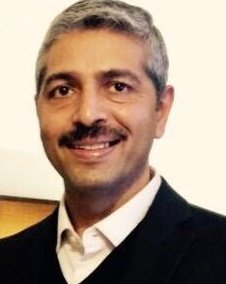Is India poised to become a world leader in eliminating TB?
March 27, 2018 | Tuesday | Features | By Dr Sanjay Sarin
India remains committed to Universal Health Coverage through the national Health Protection Scheme, and is working to implement strategies that will help to destigmatize the disease in order to support access to care for more people.
Very recently, Prime Minister Shri Narendra Modi opened the Delhi End TB Summit 2018, highlighting India’s critical role in the global effort to end the tuberculosis (TB) epidemic in line with Sustainable Development Goal (SDG) targets.
TB is the world’s deadliest infectious disease, and according to the World Health Organization (WHO) Global TB Report 2017, India continues to have the highest number of TB cases in the world. But we are tackling this challenge head on. While SDG targets aim to end the epidemic by 2030, Prime Minister Modi outlined India’s new National Strategic Plan for TB Elimination 5 years earlier – by 2025.
Why is India so confident? For one thing, TB research and development in India is very strong. The prestigious Stop TB Kochon Prize for 2017 was just awarded to the Indian Council of Medical Research (ICMR) during the Summit, in recognition of outstanding research contributions, including work that laid the foundation of DOTS (Directly Observed Treatment Short course), a highly efficient and cost-effective approach which is now the internationally recommended strategy for TB control. India continues to take a leading role in the development of new diagnostics, drugs and vaccines.
A holistic and multi-sectoral approach to TB elimination is critical. Innovative programmes are already in place, including direct benefit transfers, which provide cash incentives to people with TB in order to augment nutritional support. Private sector engagement is also helping to drive the overall healthcare agenda.
India remains committed to Universal Health Coverage through the national Health Protection Scheme, and is working to implement strategies that will help to destigmatize the disease in order to support access to care for more people.
Correctly diagnosing TB, and identifying drug-resistance to ensure people can access appropriate treatment, is at the heart of the elimination efforts. Strengthening diagnostic capacity is key, and there continues to be a focus on improving laboratory capacity for diagnosing TB and its drug-resistant strains.
The World Health Organization has begun work on an Essential Diagnostics List (EDL) – a counterpart to the existing Essential Medicines List (EML). There is a window of opportunity for India to set an example to other countries by developing a national EDL aimed at: improving patient care, helping detect outbreaks, increasing affordability of tests, reducing out-of-pocket expenses for tests, reducing antibiotic abuse as part of antimicrobial resistance control, improving regulation and quality of diagnostic tests, strengthening accreditation and quality of laboratories, improving supply chain, and guiding the research and development of new diagnostic tools. A successful EDL will also promote rational use of diagnostics as well as being cognisant of the economic burden on the patient.
Immediately prior to the Delhi End TB Summit, ICMR hosted a National EDL Consultation Meeting. It was determined that the national EDL should be developed by working back from the EML, taking treatment guidelines into account. It must take into account the standards of available human resources, quality, sensitivity and specificity of tests, standard operating procedures and costing. While a focus on all levels of healthcare is important, the emphasis should be on primary healthcare – the point at which patients first present. It also need to take account of an evolving landscape – changes to disease burden, epidemiology and new diagnostics becoming available will mean ongoing revisions to the EDL will need to be considered. This will also have implications for the way in which the EDL is delivered in clinical practice.
Here too, the private sector has an important role to play, with capacity and capability that must be taken into account as public–private collaborations are explored.
It is an exciting time for TB in India. We have the potential to be world leaders in eliminating this disease, and the momentum to make it happen.
- Dr Sanjay Sarin, Head, FIND India









